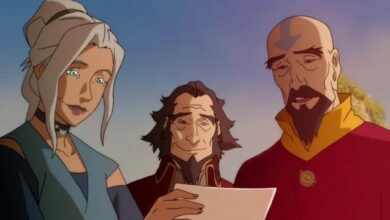Wordle is more than just a game; it’s a cultural phenomenon that has captivated millions around the globe. In this article, we’ll explore the Wordle history, its origins, development, and the impact it has had on the world of online gaming and beyond. From its simple mechanics to its widespread popularity, Wordle represents a unique blend of creativity and community. So, let’s dive into the fascinating Wordle history and discover what makes this game so special!
The Genesis of Wordle
Wordle was created by Josh Wardle, a software engineer based in Brooklyn, New York. The game was born out of a simple desire to create something fun for his partner, who loves word puzzles. Here’s how it all started:
- Inspiration: Josh wanted to design a game that combined the challenge of crossword puzzles with the accessibility of word games.
- Development: He spent a few months developing the game during the COVID-19 pandemic, testing it with family and friends.
- Launch: In October 2021, after gathering feedback, he officially launched Wordle to the public on a website he built.
How Wordle Works
At its core, Wordle is a straightforward game. Players have six attempts to guess a five-letter word, with clues given after each guess. Here’s a brief overview of the game mechanics:
- Guessing: Players enter a five-letter word.
- Feedback:
- If a letter is correct and in the right position, it turns green.
- If a letter is correct but in the wrong position, it turns yellow.
- If a letter is not in the word, it turns gray.
- Winning: Players win by guessing the correct word within six tries.
The Simplicity of the Concept
What makes Wordle unique is its simplicity. Unlike many other online games that require downloads or complex tutorials, Wordle can be played directly in a web browser. This ease of access contributed to its rapid rise in popularity.
The Viral Spread of Wordle
After its launch, Wordle quickly gained traction. Here are some key moments in its viral spread:
- Social Media Buzz: Players began sharing their scores on social media, particularly Twitter. The colorful grids displaying their guesses sparked curiosity among non-players.
- Media Attention: As Wordle’s popularity grew, media outlets began covering it, further fueling interest.
- Community: A sense of community developed around the game, with players sharing strategies and tips.
The Acquisition by The New York Times
In January 2022, just a few months after its launch, Wordle was acquired by The New York Times. This acquisition marked a significant milestone in the Wordle history. Here’s what it meant:
- Sustainability: The New York Times aimed to maintain the game while ensuring its sustainability and growth.
- New Features: After the acquisition, new features were gradually introduced, including a mobile app and various word games.
- Integration: Wordle became part of The New York Times’ puzzle offerings, joining the ranks of crosswords and other brain-teasers.
Cultural Impact of Wordle
Wordle has made a lasting impact on popular culture. Here are a few ways it has influenced society:
- Language Skills: Many players have reported improvements in their vocabulary and spelling skills due to regular gameplay.
- Social Interaction: The game has created a unique way for people to connect and share experiences, especially during times of isolation.
- Inspiration for Other Games: The success of Wordle inspired numerous clones and variations, leading to a new genre of online word games.
Wordle-Inspired Games
The influence of Wordle led to the creation of several similar games. Some notable examples include:
| Game Title | Description |
|---|---|
| Absurdle | A more challenging version where the word changes with each guess. |
| Heardle | A music-themed game where players guess the song based on short clips. |
| Octordle | Players guess multiple words at once, making it more complex. |
The Science Behind the Popularity
So, what makes Wordle so addictive? Here are some psychological factors at play:
- Instant Gratification: The game’s design provides quick feedback, satisfying players’ desire for immediate results.
- Challenge and Reward: Players are motivated by the challenge of solving the puzzle within limited tries, creating a sense of accomplishment.
- Social Sharing: The game encourages players to share their results, creating a sense of competition and community.
The Future of Wordle
As we look ahead, what does the future hold for Wordle? Here are some possibilities:
- New Features: The New York Times may continue to innovate by adding new features or variations to keep the game fresh.
- Expansion: Wordle could expand into other languages, catering to a broader audience.
- Educational Uses: Educators may find creative ways to incorporate Wordle into classrooms, enhancing vocabulary and critical thinking skills.
The Enduring Legacy of Wordle
Wordle has already left an indelible mark on the world of online gaming. Its legacy will likely endure, influencing future game designs and fostering a sense of community among players. The Wordle history is not just about a game; it’s about connection, creativity, and the joy of problem-solving.
Conclusion: Celebrating Wordle History
In conclusion, the Wordle history is a remarkable story of creativity, community, and cultural impact. From its humble beginnings as a simple word game to becoming a global sensation, Wordle has captured the hearts of millions. As we continue to play and share our experiences, let’s celebrate this unique game that has brought so much joy into our lives. Whether you’re a seasoned player or a newcomer, Wordle invites everyone to join in on the fun. Happy word hunting!




